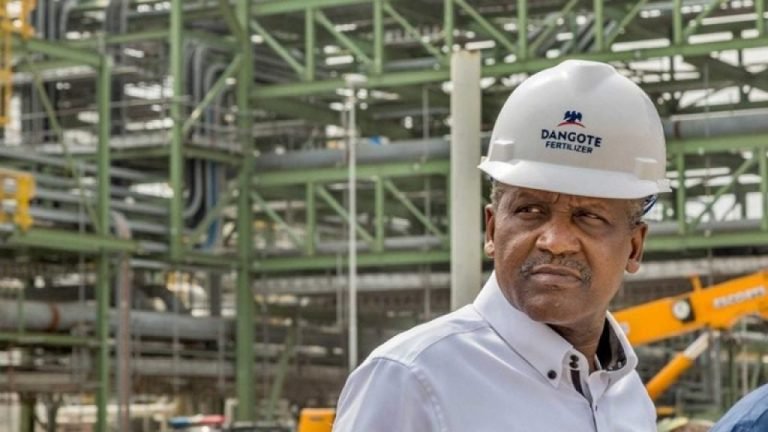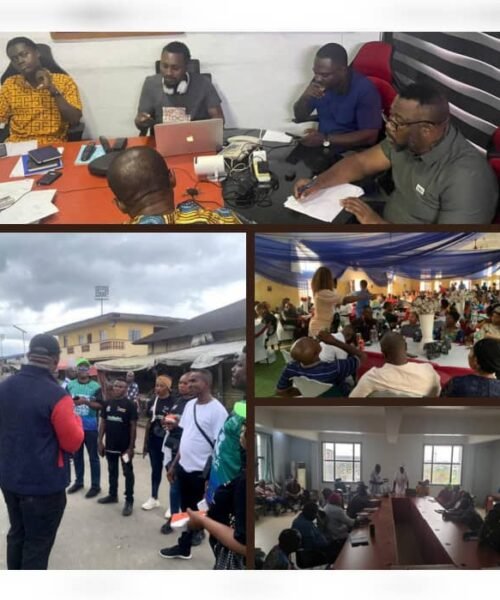Dangote Refinery On Track For July Petrol Supply – Official
The Vice President of Oil and Gas at Dangote Industries Limited, Devakumar Edwin, has reiterated that the Dangote oil refinery will supply petrol in July as promised.

Edwin said this when he took officials of the S&P Global on a tour of the facility over the weekend.
According to Edwin, the company aims to catalyse a virtuous cycle of industrial development, job creation, and economic prosperity by harnessing Africa’s abundant crude oil resources to produce refined products locally.

He also revealed that “as earlier promised, the company will start the production of Premium Motor Spirit this month.”
While claiming that the products from the facility are of high quality and that they meet international standards, Edwin said it could meet 100 per cent of Nigeria’s demand for petrol, diesel, kerosene, and aviation fuel, with surpluses available for export.

Meanwhile, S&P Global said the Dangote refinery is capable of resolving Nigeria’s foreign exchange challenges by putting an end to fuel importation, which mounts huge pressure on the local Naira currency.
Our correspondent learnt that S&P Global visited the Dangote Refinery at Ibeju-Lekki, Lagos as part of its sovereign credit ratings assessment of Nigeria.
The team from the international rating agency was accompanied by officials from the Federal Ministry of Finance.
The Director and Lead Analyst, Sovereign and International Public Finance Ratings, S&P Global Ratings, Ravi Bhatia, who led the delegation to Lagos, said the Dangote refinery would transform Nigeria into a net exporter of petroleum products, adding that this transformation is expected to boost revenue generation and alleviate the current pressure on the country’s foreign exchange reserves.
Bhatia said, “It is a very impressive facility, able to process 650,000 barrels a day, when in full capacity. It is the largest single-train refinery complex in the world. It came out quite quickly. Nigeria is a big exporter of crude but has issues with importing refined fuels.
“So, there is a gap in the market where crude can be refined in Nigeria, save money that way, and potentially save some foreign exchange. This will be positive for the economy in the medium term. It looks positive from our assessment,” Bhatia said after an over four-hour tour of the facility.”
The S&P team commended the President of Dangote Industries Limited, Aliko Dangote, for integrating advanced technologies and quality control measures, including a state-of-the-art Central Control Unit, ensuring smooth automation of operations.
Currently operating at 350,000 barrels per day capacity, Edwin said the refinery is slated to scale up to at least 500,000 barrels per day capacity by July/August, commencing the refining of petrol and ultra-low sulphur diesel.
He noted that the refinery, designed to process a wide range of crudes including various African and Middle Eastern crudes, as well as US Light Oil, conforms to Euro V specifications, saying it was designed to comply with US EPA, European Union emission norms, the Department of Petroleum Resources emission/effluent norms, and the African Refiners and Distribution Association standards.
While noting that most refineries were built by foreign companies, he said it is a thing of pride that a Nigerian company designed and built the world’s largest single-train refinery complex while acting directly as its own Engineering, Procurement, and Construction (EPC) contractor. The refinery also incorporates a self-sufficient marine facility capable of handling the world’s largest vessels.
“The refinery can produce the best quality products in the world, Euro V grade. It is one of the energy-efficient refineries and it is highly environmentally friendly. It is sophisticated with a high level of automation. “The largest single train refinery in the world is 100 per cent designed, engineered, and constructed by a Nigerian company as an EPC contractor,” he said.







